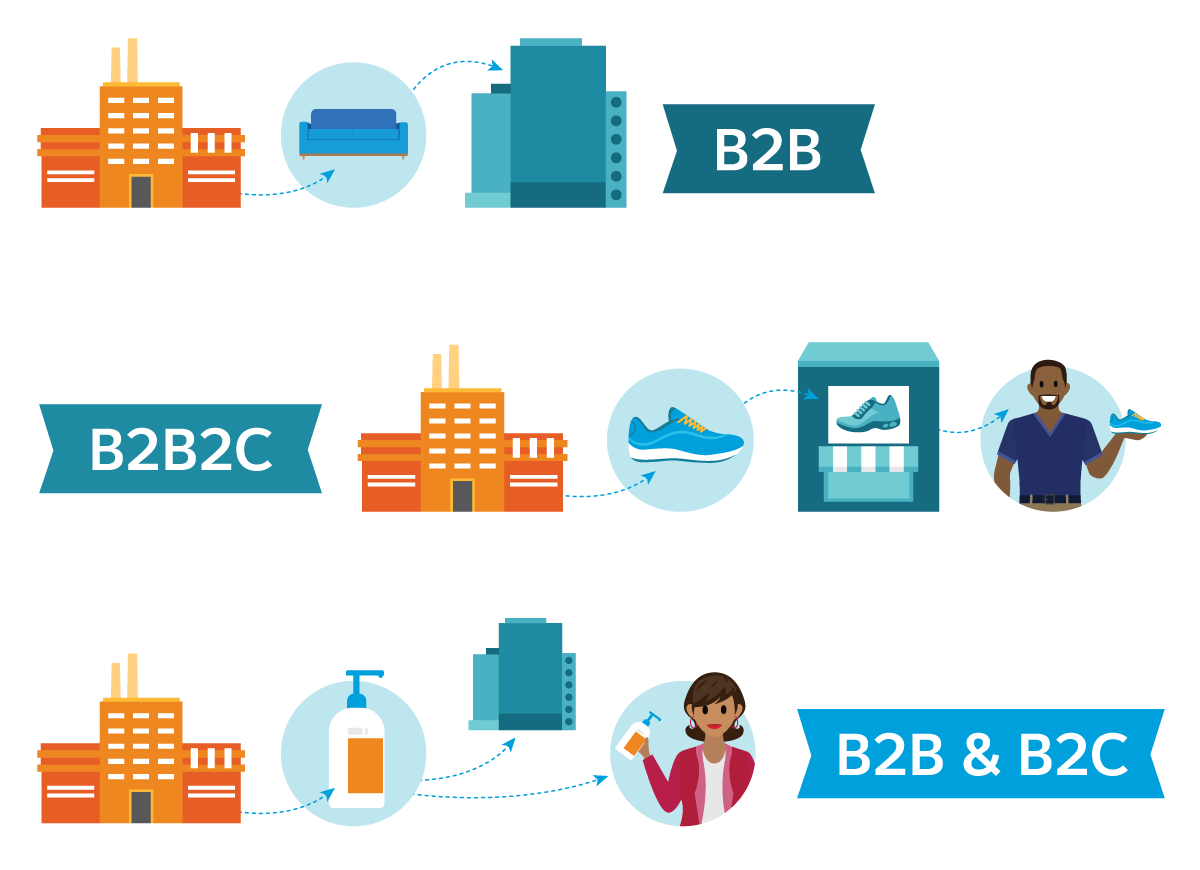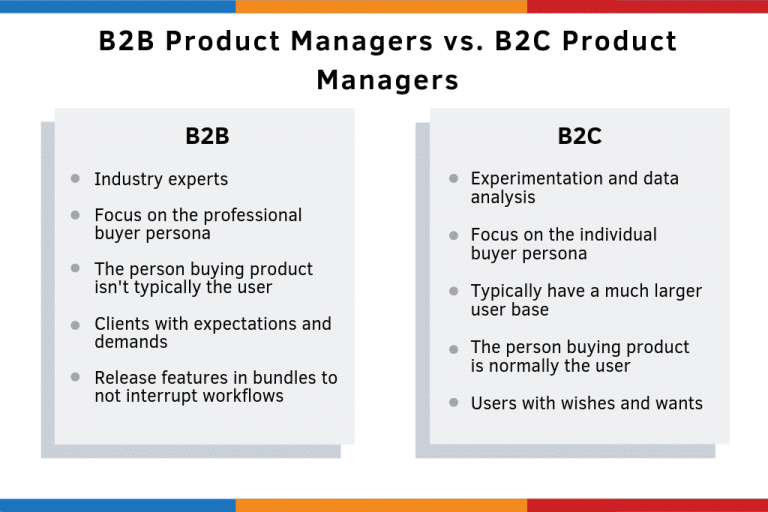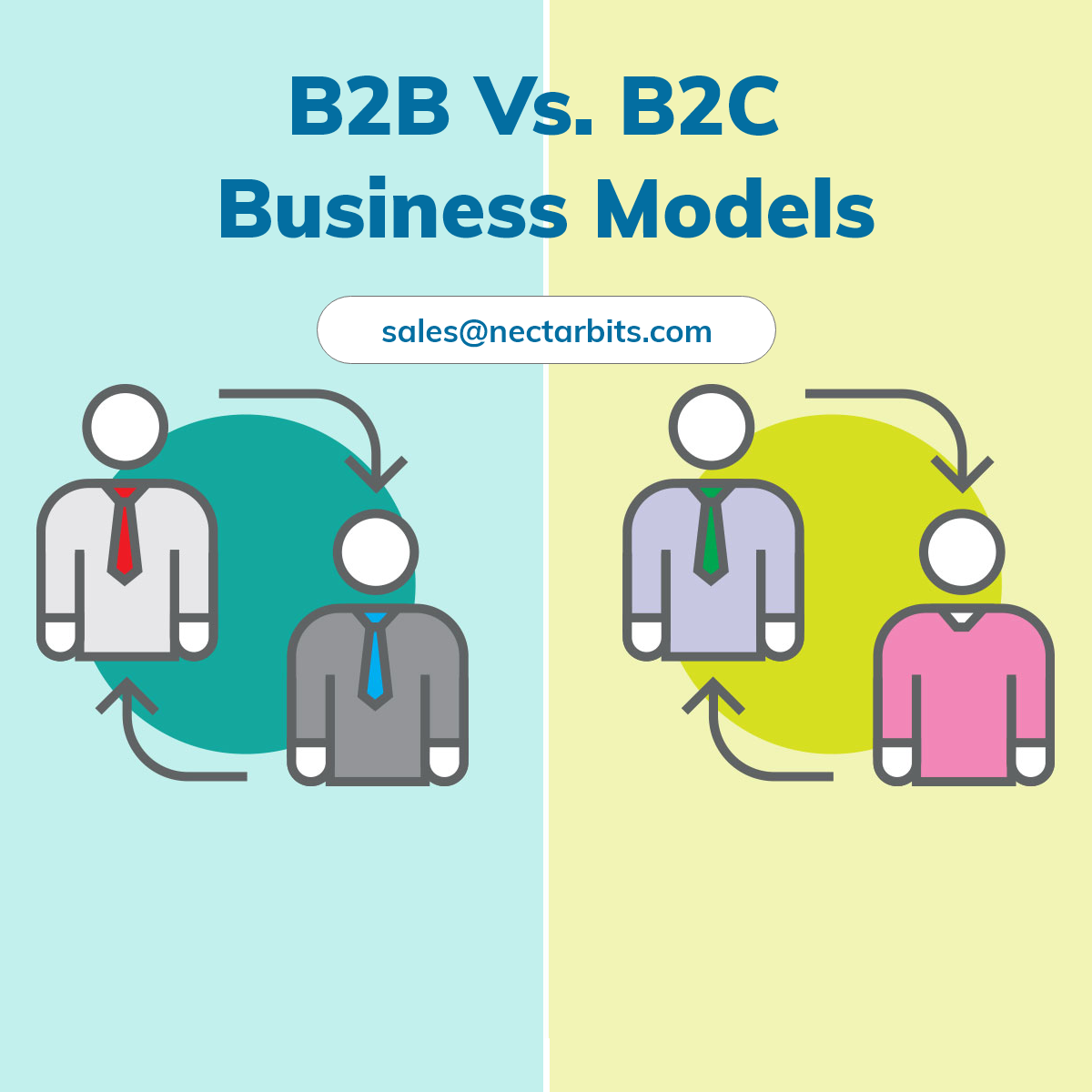B2B vs B2C Business Models Explained: A Comprehensive Guide

Delve into the intricacies of B2B vs B2C business models explained, where we unravel the differences and similarities between these two fundamental approaches in the business world. Through this exploration, readers will gain valuable insights into the unique dynamics that shape these distinct models, paving the way for a deeper understanding of their impact on modern commerce.
In the subsequent paragraphs, we will delve into key aspects such as customer relationships, marketing strategies, sales processes, and product development to provide a holistic view of B2B vs B2C business models explained.
Introduction to B2B and B2C Business Models

Business-to-Business (B2B) and Business-to-Consumer (B2C) are two common business models that companies use to sell their products or services. Understanding the differences between these models is essential for businesses to tailor their strategies effectively.
Differentiation between B2B and B2C Target Customers
- B2B: In the B2B model, businesses sell products or services to other businesses. The target customers are typically companies, organizations, or institutions looking to procure goods or services for their operations or resale.
- B2C: On the other hand, in the B2C model, businesses sell directly to individual consumers. The target customers are everyday people who purchase products or services for personal use.
Examples of Industries Using B2B and B2C Models
- B2B: Industries that commonly use the B2B model include manufacturing, wholesale, and technology. For example, a software company selling its products to other businesses for their internal operations.
- B2C: Industries that typically operate under the B2C model include retail, entertainment, and e-commerce. For instance, a clothing brand selling its products directly to consumers through online or physical stores.
Customer Relationships
Building strong customer relationships is crucial for the success of any business, whether it operates in a B2B or B2C model. However, the dynamics of customer relationships differ significantly between these two models.
Differences in B2B and B2C Customer Relationships
In B2B relationships, trust and loyalty play a paramount role. Companies engage in long-term partnerships based on trust, reliability, and mutual benefit. B2B customers are looking for solutions to complex business problems, and building trust is essential to securing their long-term business.On the other hand, B2C relationships are more transactional in nature.
Customers in the B2C model are driven by convenience, price, and customer experience. While trust is still important, loyalty may not be as strong as in B2B relationships. B2C companies often focus on providing exceptional customer service and creating memorable experiences to keep customers coming back.
Importance of Trust and Loyalty in B2B Relationships
In B2B relationships, trust is the foundation on which everything else is built. Companies rely on each other to deliver on promises, meet deadlines, and provide quality products or services. Establishing trust leads to long-term partnerships, repeat business, and referrals.
Loyalty in B2B relationships ensures stability and consistent revenue streams.
Strategies for Building Long-Term Relationships with B2C Customers
1. Personalization
Tailor your products or services to meet the individual needs and preferences of your B2C customers.
2. Exceptional Customer Service
Provide prompt and helpful customer support to enhance the overall experience.
3. Loyalty Programs
Offer rewards, discounts, and incentives to encourage repeat purchases and foster loyalty.
4. Engaging Content
Create engaging content through social media, email marketing, and other channels to connect with your B2C customers.
5. Feedback Mechanisms
Listen to customer feedback and make improvements based on their suggestions to show that their opinions are valued.By understanding the differences in customer relationships between B2B and B2C models and implementing strategies tailored to each, businesses can effectively build and maintain strong relationships with their customers.
Marketing Strategies
Marketing strategies play a crucial role in the success of both B2B and B2C businesses. While they share some similarities, there are also key differences in how they approach marketing to reach their target audiences. Let's explore the distinct strategies employed by B2B and B2C businesses and the role of content marketing in each context.
Comparison of Marketing Strategies
- B2B businesses typically focus on building long-term relationships with other businesses. They often use personalized marketing techniques, such as email campaigns and targeted content, to nurture leads and drive conversions.
- On the other hand, B2C businesses target individual consumers and often employ mass marketing strategies to reach a wider audience. They may use social media, influencer partnerships, and promotions to attract and retain customers.
- B2B marketing is more rational and logic-based, focusing on the value proposition and ROI for businesses. In contrast, B2C marketing appeals more to emotions and desires, aiming to create a connection with consumers.
Role of Content Marketing
Content marketing plays a vital role in both B2B and B2C contexts, but the approach may vary based on the target audience.
- In B2B marketing, content is often educational and informative, focusing on industry trends, case studies, and whitepapers to establish thought leadership and credibility.
- For B2C marketing, content is more entertainment-focused, with a strong emphasis on visual elements, storytelling, and engaging videos to capture the attention of consumers.
Examples of Successful Marketing Campaigns
| B2B | B2C |
|---|---|
| LinkedIn's "In It Together" campaign targeted at businesses, highlighting success stories and fostering a sense of community among professionals. | Apple's "Shot on iPhone" campaign showcasing user-generated content to demonstrate the quality of iPhone camera capabilities and engage consumers. |
| Salesforce's "Leading Through Change" webinar series providing valuable insights and resources for businesses navigating challenges during the pandemic. | Coca-Cola's "Share a Coke" campaign personalizing soda bottles with popular names to create a connection with consumers and drive sales. |
Sales Process
In both B2B and B2C business models, the sales process is a crucial aspect that ultimately leads to revenue generation. However, there are significant differences in how the sales process is carried out in each type of transaction.
B2B Sales Process
In B2B transactions, the sales process is typically more complex and involves longer sales cycles compared to B2C. This is because B2B sales often require multiple decision-makers and stakeholders to be involved in the purchasing process. Sales representatives in B2B transactions are tasked with building long-term relationships with clients, understanding their specific needs, and providing tailored solutions to address those needs.
The sales process in B2B is more consultative and relationship-driven, focusing on creating value for the business as a whole.
B2C Sales Process
On the other hand, the sales process in B2C transactions is usually more straightforward and transactional. B2C sales are often driven by emotional or impulsive buying decisions made by individual consumers. The sales cycle in B2C is generally shorter, as the decision-making process is usually done by one individual.
Sales representatives in B2C transactions focus on persuading customers to make a purchase based on their individual preferences and needs.
Role of Sales Representatives
In B2B sales, sales representatives play a critical role in nurturing leads, building relationships with clients, and providing expertise and guidance throughout the sales process. They are responsible for understanding the complexities of the products or services being offered and how they can add value to the client's business.
In contrast, sales representatives in B2C transactions focus more on driving immediate sales by appealing to the emotions and preferences of individual consumers. They often use tactics like discounts, promotions, and incentives to persuade customers to make a purchase.
Product Development and Innovation

In the competitive landscape of business, product development and innovation play a crucial role in the success of both B2B and B2C companies. Let's explore how these aspects differ between the two models and their significance in maintaining a competitive edge.
Differences in Product Development
When it comes to product development, B2B companies often focus on creating solutions that cater to the specific needs and requirements of other businesses. This typically involves developing products that improve efficiency, streamline processes, and enhance overall productivity for their clients.
On the other hand, B2C companies concentrate on creating products that appeal to individual consumers, considering factors like design, usability, and emotional appeal.
- B2B companies prioritize functionality and practicality in their product development process.
- B2C companies emphasize aesthetics, user experience, and emotional connection with their products.
Importance of Innovation in Staying Competitive
Innovation is a driving force behind staying competitive in both B2B and B2C models. Companies that continuously innovate and introduce new products or features are more likely to attract and retain customers. In the B2B sector, innovation can lead to increased efficiency, cost savings, and improved outcomes for business clients.
For B2C companies, innovation can create buzz, generate excitement, and drive consumer interest in their products.
Constant innovation is essential to meet evolving customer demands and stay ahead of competitors in today's dynamic market.
Examples of Innovative Products
Both B2B and B2C companies have showcased innovative products that have disrupted industries and set new standards. For instance, B2B companies like Salesforce have revolutionized customer relationship management (CRM) software with cloud-based solutions that offer enhanced customization and scalability for businesses.
On the B2C side, companies like Apple have consistently introduced innovative products like the iPhone, iPad, and Apple Watch, setting trends and redefining user experiences in the consumer electronics market.
- Salesforce - Cloud-based CRM solutions for businesses
- Apple - iPhone, iPad, and Apple Watch
Closing Notes

In conclusion, the comparison between B2B and B2C business models offers a nuanced perspective on the diverse strategies employed by businesses to engage with their target markets. By grasping the intricacies of these models, businesses can tailor their approaches to effectively navigate the ever-evolving landscape of commerce.
Essential Questionnaire
How do B2B and B2C business models differ in terms of target customers?
In B2B models, businesses sell products or services to other businesses, while in B2C models, they target individual consumers.
What role does customer trust play in B2B relationships?
Trust is essential in B2B relationships as businesses rely on reliability and credibility to form long-term partnerships.
How does the sales process differ between B2B and B2C transactions?
The sales process in B2B transactions is typically more complex and involves negotiations with multiple stakeholders.

